-
Careers After Babies
about 2 months ago by David LoveGiven that our first child's birth was one of the catalysts for launching The Great & The Good, Emma and I have long been advocates for working parents having fulfilling careers.We are constantly hearing from mums who are seeing their careers stall after having children but also from dads who are denied the flexibility to play a more active part in their children’s lives. It often seems that neither parent is getting what they want.I was therefore very interested to read about the work of Jess Heagren.Rather than silently seethe, Jessica decided to do something about the problem and founded Careers After Babies last year. Her aim is to change how companies behave and thus make them a better employer of choice for working parents.To that end, Careers After Babies offers a range of templates, tools and advice to employers. Businesses can also achieve Accreditation (Certification for smaller businesses) to proudly show off their commitment to building a parent-friendly culture.YourStudio recently went through this process and their Group Head of People Sarah Spate (pictured) was kind enough to share their story. Sarah explains that YourStudio (an 80-person retail design and strategy agency) was already pretty advanced in their thinking before speaking with Careers After Babies. Flexible working was the norm and public parenting was very common among senior staff.Working with Careers After Babies has therefore been a helpful aide to formalise the agency’s best practices but also to encourage discussion around parents’ careers.The discussions highlighted steps that YourStudio could take to ensure that parents (as well as other carers) continued to be fully supported – for example ensuring that calls with overseas clients weren’t at bath/bedtime. They were also able to ensure that caring responsibilities didn’t become an impediment to career progression.The result has been not only a cohort of very engaged parents but also an appreciation from the wider team that YourStudio has a genuinely human approach.For more information about the work Careers After Babies are doing visit careersafterbabies.org.
Read More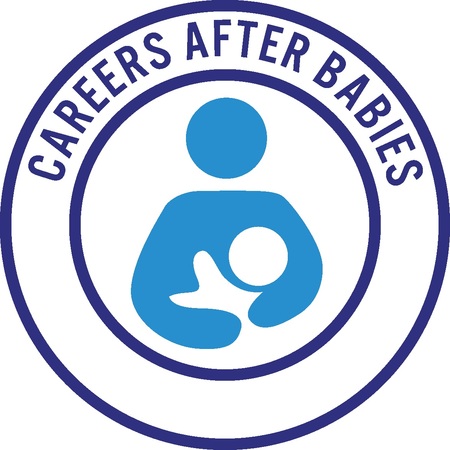
-
An end to The Great Resignation?
over 1 year agoCampaign recently published an article looking at the changing recruitment market in advertising. As ever, there were a variety of viewpoints making for interesting reading. www.campaignlive.co.uk/article/adlands-great-resignation-over/1805899But are we seeing an end to the Great Resignation?To answer this question, we need to get to the root causes of the issue. In our view, much of the churn over the last 18 months is that so many agencies were already running very lean before covid hit. Throw in mass redundancies in Spring/Summer 2020 and teams were down to their bare bones. Once WFH became the norm however, many agencies found that client work quickly returned. Coupled with a big new business drive, this meant a bumper 2021. Finding enough people to fill the gaps was soon a major issue – hence the salary jumps we have seen in the last year. Under-resourcing leads to frustration (or worse, burnout) and people quit; perhaps even leaving the industry altogether. But has this churn finally subsided? Our sense is that it has slowed but not completely stopped. Firstly, we’d agree with Zoe Edwards that there is some element of seasonality to the current market. The usual November slowdown has also been exacerbated as bigger companies put in place hiring freezes until Christmas – in many cases to allow them to focus on well-earned promotions and pay rises for existing colleagues. As we move into 2023 however, we predict a change. Those in more senior roles may, as ever, take more convincing to jump ship. Typically, there are mortgages, childcare costs, etc. to be mindful of. Nevertheless, at the junior and mid-level there is perhaps a different story. As Campaign’s article mentions, there was a significant number of people moving roles in 2021. Many of these were at salaries below £70,000. This is also the level were there has perhaps been most difficulty finding great people. As we come into 2023, those same people will be coming up to two years in their new post; a natural point to start looking at the next step. If that move isn’t available in their current company, the only option is to consider something elsewhere. Over the last two years, we have also seen an increase in the number of candidates (fortunately only a couple placed by us!) returning to us 3-6 months after starting in a new position. In a candidate-short market, anybody not 100% enjoying their role (or feeling out of their depth), is likely to look to leave before the end of their probation period. It’s therefore clear that on all sides there is a definite need for clarity and realism; whether about the requirements of the role or your ability to meet those needs.Finally, there is the question of salary.Over the last 12 months, we have generally seen average salaries increase by around 10%. However, this is only keeping pace with inflation and has largely been achieved by those moving to a new company. Consequently, there are still candidates for whom a pay increase is a definite motivator.We can therefore see that 2023 will have a continuation of this year's trends:Senior roles may well be somewhat quieterThere will be a fight for good junior and midweight peopleSalaries may increase slightly again before settling.
Read More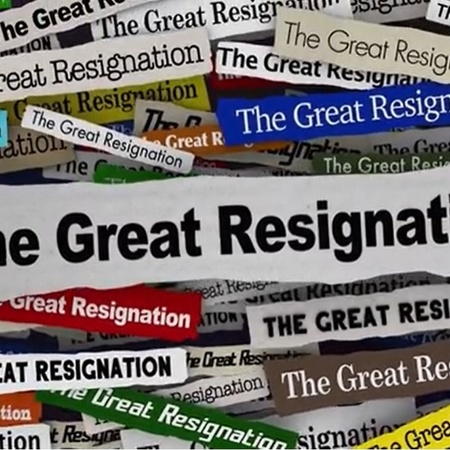
-
Longing to Belong
over 2 years ago by David LoveIt could be called a perfect storm. The combination of pandemic-induced redundancies, the subsequent burnout and far fewer people coming to the UK has meant that Adland’s talent crunch seems set to continue for the foreseeable future. At the same time, although agencies are gradually reopening their offices, the increased levels of flexibility now being offered have led to a greater risk of employee disconnection. In short, every business needs to work harder to ensure that everyone feels part of the team. A recent study from McKinsey took a deep dive into the reasons behind The Great Resignation. Heidi Stephens, Head Of Strategy at Employer Brand agency BrandPointZero, analyses the findings and gives her thoughts on businesses’ best course of action.At BrandPointZero, a lot of our clients ask for our help with maximising attraction and minimising attrition. It’s a competitive marketplace right now, and in many sectors prospective employees are in the driving seat. Attraction and attrition are useful bellwethers of business health and employee happiness, because they’re rational, objective-led things that can be monitored, measured and tracked over time. But it’s easy to forget that we’re also talking about people - individuals with needs and attributes as unique and complex as their fingerprints. The minute we reduce them to numbers on a spreadsheet, we fundamentally de-value them. The McKinsey study tells us that employers think the reasons their employees are fleeing for pastures new are also rational, functional things – salary, benefits, perks. Conveniently, these are all things that are quick to fix – a hike in salary, a retention bonus, maybe free Friday cupcakes and a beer fridge. Or if you don’t have deep pockets, they’re easy to shrug off as just market forces, nothing we can do about it. But actually, that doesn’t bear out in the research at all. According to McKinsey, “The top three factors employees cited as reasons for quitting were that they didn’t feel valued by their organizations (54 percent) or their managers (52 percent) or because they didn’t feel a sense of belonging at work (51 percent).”I mean, that’s quite a sad indictment on the leaders of US corporations and UK Plc, isn’t it? So let’s talk about belonging, because lots of employers are not. The reasons are obvious – it’s vague and intangible, it’s about emotions, it’s not something you can calculate or measure on a spreadsheet. Facts don’t care about your feelings, and in many cases, neither does your employer.But a sense of ‘not belonging’ at work is real, and sometimes the impact can be deep-seated and damaging. My personal experiences are miniscule in the scheme of things, primarily because I’m a cishet middle-class white woman with sharp elbows. There was one job that felt like a record scratch from day one – my manager was detached and absent, my teammates clearly didn’t want me there, the office culture was weird and oppressive and uncomfortable, nobody listened or supported each other. I slogged it out for a few months before handing in my notice, explaining exactly why I was going. My manager offered me more money, which very much proved my point. I’ve never driven out of a car park so fast. So what IS belonging, and how can businesses be better at nurturing it? Let’s start with a definition - belonging is a feeling of support and security at work, when there is a sense of inclusion and acceptance. It helps people form and maintain positive, lasting relationships with their colleagues and their employers. It helps drive people’s commitment to their employer, their motivation to do a great job, their pride in their work and whether they recommend their employer to others.Employees want to feel part of a shared vision and purpose; they want to be listened to and included, they want to be trusted to do their job, they want to form collaborative and positive relationships with othersWhat’s interesting about having a sense of belonging is that it counts for everyone, regardless of age, gender, gender identity, race, religion, sex or sexual orientation. But studies also show that that correlation between having a sense of belonging and feeling engaged as an employee is higher for underrepresented groups. The McKinsey study backs this up – “employees who classified themselves as non-White or multiracial were more likely than their White counterparts to say they had left because they didn’t feel they belonged at their companies”. This is no surprise - a culture of belonging comes from the top, and more often than not the top does not reflect the essence of diversity and inclusion. I would love to think that I won’t have to write that line for many more years, but here we are. That’s not to say there aren’t plenty of business leaders who are brilliant at making employees feel like they belong – there absolutely are. And here’s the thing: the things that employees want – the things that make them feel like they belong and want to get out of bed for their job every day – cost nothing. And more importantly, they have more longevity than short term bonuses and salary increases.Change must always be conscious – an acceptance that if we’re not working at being actively inclusive, we’re probably being unintentionally exclusive. Employees want to feel part of a shared vision and purpose; they want to be listened to and included, they want to be trusted to do their job, they want to form collaborative and positive relationships with others. They want to be able to bring their best selves to work every day, and be respected as unique individuals, regardless of their background or demographic profile. Fundamentally, they want to feel like they matter. If I think back to the jobs I’ve moved on from over a long career, I can easily remember which of these factors was the catalyst for change. As with everything else, being valued is about so much more than what’s on your monthly payslip. Obviously you'll never get 100% of people to feel like they belong 100% of the time...but that's no reason not to try. Change must always be conscious – an acceptance that if we’re not working at being actively inclusive, we’re probably being unintentionally exclusive. It starts with acknowledgement and understanding, followed by listening initiatives and open and honest channels for feedback and collaboration. It’s an eternal commitment that flourishes and grows over time, rather than a tick box exercise, because our people - real people - will not tolerate management by numbers. Done properly, it will benefit productivity, growth, workplace wellbeing, absence, attraction and attrition – all those things you can measure on that spreadsheet. So everyone’s happy, right? Heidi Stephens is Head Of Strategy at BrandPointZeroArticle originally published on LinkedIn
Read More
-
A day in the life of a Senior Account Manager
almost 3 years ago by David LoveWhat's it really like to work in account management at a leading advertising agency? Lottie Tonks - Senior Account Manager, Iris Worldwide - takes us behind the scenes and describes a typical day:I start my day by checking emails and catching up on any requests that might have come in overnight. I’ll action anything urgent, often trying to find more resource to help get work over the line! Once I’m all up to speed I’ll start pulling together actions for the day ahead, then it’s time for our internal project status, where we’ll make sure the wider team is clear on what needs to be worked on or delivered on that day.By late morning I’m usually running status calls with clients and checking-in with any additional requests from their side. Always trying to see if there’s more opportunities for us to take on other aspects within the wider campaign, such as social briefs. If we’re presenting creative work that day, I’ll share this with the wider team for everyone to review and sign off, especially from a strategic point of view. We’ll then jump on our call to present, it’s up to us to tee-up the call and set the agenda. Once the work has been presented, we’ll encourage a conversation and initial thoughts before wrapping up the call, recapping any initial feedback and making sure next steps are clear, often letting the client know when to share feedback within timings. Creative presentations are a really exciting part of the job as you start to see the ideas coming to life. "Creative presentations are a really exciting part of the job as you start to see the ideas coming to life". Another really great part of the job is shoots and having the opportunity to work on those. Typically, on set you’ll be responsible for getting the client to sign off on wardrobe, set-ups and shots. It’s key to keep track of the shot list and ensure the client is reviewing and is happy with everything. Shoots are one of the best chances to continue to build client relationships. My afternoon is often spent pulling together or reviewing campaign toolkits and briefs for the next few days. It’s important to always check resource has been booked in for your projects and be on top of billing to avoid overburn. "Another really great part of the job is shoots and having the opportunity to work on those". If we’ve had a new brief come in, we’ll take the call with clients then review and pull together all the relevant information before briefing this into our planning and strategy team, this often involves researching previous campaigns and seeing what competitors are up to. Throughout the day it’s important to keep on top of your inbox and be flexible to jump on anything that might pop up, such as pulling together work for clients to share with markets and agencies so all parties are always up to date with creative work and production, it’s important to be organised and making sure calls with clients and internal briefings are booked in. I’ll finish my day by sharing any work due with the client, this could be updated creative presentations, artwork, digital deliverables or project documents; costs and timings. This piece was originally published as part of Inside The World of Account Management for Campaign
Read More
-
Inside the world of account management
almost 3 years ago by David LoveAccount management. Client services. Account handling. The department may be known by different names but typically you are the link between the agency and clients; the voice of the client to colleagues and representing the agency externally.The day-to-dayActing as that link between agency and client, at the heart of any account management role is the building and maintaining of relationships.At the more junior level, your role is to manage work through your agency, making sure that everything happens when and how it should. With more seniority comes more ownership of campaigns or projects. In the most senior positions, you will typically take overall responsibility for the commerciality of the account.Key skillsIn addition to taught abilities, account managers require softer, almost instinctive, skills, such as:Relationship building: Most prominent is the need to build trust quickly; whether it be with clients, colleagues or partners.Client management: You will need to develop an understanding of your client’s business, their objectives and how the agency can best help to achieve those goals.Commercial acumen: Is it viable to create this work at this price? Will it give the agency funds, fame or fun?Diplomacy: You may be telling a client that their budget needs to be doubled to achieve the results they need. Or letting your colleagues know that the client has had to change the brief, and you now have to complete eight months’ work in eight weeks.Industry perspectiveSome of the industry’s senior people have kindly let us know what skills they look for in account handlers.Zoe Crowther, managing partner, Red Brick Road, says:I believe great account people are and always have been great problem solvers. Of course, the types of problems vary with experience; from keeping a small production project running smoothly to building new operating models and ways of working that are fit for changing client needs. Tenacity, positivity, empathy and an entrepreneurial spirit are vital for that ‘problem solving’ mindset.While Nilesha Chauvet, managing director of GOOD Agency, goes further:Account management is about building strong client relationships, and it’s about getting the very best work out of the door. To make this happen, the qualities I look for in a great account person are still the same now as they always were.The qualities include:Communication skills need to be clear, on point, succinct and well-honed.A spark of passion and an infectious personality clients and colleagues will want to spend time with.Intelligence and evidence of diverse and solution-based thinking.Creative and commercial nous, signs of entrepreneurship – the hunger to make things happen and to keep things moving.Broad arms to heavy-lift and to juggle complex projects - good account people get off on all of it.Those softer, more refined skills involving collaboration with others. Because everyone knows that this is not an industry for solo artists. It takes a team to make things work.“And now of course, everyone wants to change the world”,Chauvet adds. “So inevitably, I look for those who authentically care over and above those who just say they do. Those who really want to make a positive difference.”As a great deal of the account management role is acting as a hub between colleagues and clients, we also wanted to hear from other departments.Dean Lanzman is head of data at MullenLowe Profero.He suggests that a good account handler should be:Challenging my work. Applying their increasing knowledge of the account, the client, the vision, the results and the customer to objectively challenge my work to make it better.A calculated risk taker. Recognising the core strength of an idea and fully getting behind it both emotionally and practically.Operationally on it. Unperturbed by constantly staying close to the detail.Lottie Tonks, senior account manager, Iris WorldwideAn account manager’s perspectiveLottie Tonks is a senior account manager at Iris Worldwide. From pulling together creative toolkits and briefs to client shoots and presentations, her working day is always varied. Here she tells us about what she loves most about her role:Creative presentations are a really exciting part of the job as you start to see the ideas coming to life. Another really great part of the job is shoots and having the opportunity to work on those. Typically, on set you’ll be responsible for getting the client to sign off on wardrobe, set-ups and shots. It’s key to keep track of the shot list and ensure the client is reviewing and is happy with everything. Shoots are one of the best chances to continue to build client relationships.Her top tips for success in the role include:Throughout the day it’s important to keep on top of your inbox.Be flexible to jump on anything that might pop up, such as pulling together work for clients to share with markets and agencies, so all parties are always up to date with creative work and production.It’s important to be organised and making sure calls with clients and internal briefings are booked in.Read Lottie's full 'Day in the Life of Account Management' here.QualificationsWhilst a degree was previously seen as the norm for account handlers, more recently the expectations have changed considerably. For entry-level roles, hiring managers lean much more towards personality traits and softer skills than education.Certainly, there is generally very little expectation that account handlers hold any formal marketing qualification. Over the years, we have represented candidates who have studied law, politics, chemistry, sports science, and geography (to name a few subjects).- David Love, founding partner, The Great & The GoodSome agencies will offer sponsorship of formal qualifications from trade bodies such as a CIM or IDM qualification. This training (and the network of contacts you can form) is certainly useful to have but it is rare for agencies to stipulate these qualifications as a prerequisite.Relevant experienceOver the years, we have spoken with account managers who have come from a variety of backgrounds. Some experience of overseeing a group of people to make a project a success is always useful but overall, for entry-level roles, personality will go a long way.Rebecca Dennis, client partner, WBA Partnership, VMLY&R, has had great success hiring junior candidates who have experience of working in busy bars. Typically, these roles require a combination of positivity, resilience and teamwork – all ideal traits for an account manager.As roles become more senior, most hiring managers are typically looking for account handlers who have experience of the role. Most of the account directors we work with have made their way up from account executive through account manager roles to AD.However, it is not unheard of for marketing executives, managers and directors to make the switch into comparable roles in agencies’ client services teams.SalaryAccount handling salaries can fall into pretty broad brackets based on the location, type of work and accounts.Most London-based account executive roles in generalist, integrated agencies will come with a starting salary of around £20-£25,000 per annum. Annual salaries then rise to roughly £30-£40,000 for account managers, £50,000-£60,000 for account directors and £80,000+ for business directors.Depending on the agency, the standard benefits may include private health insurance, gym membership, cycle to work schemes and season ticket loans. Agencies are often very generous with their softer benefits – breakfast is typically provided, lots of company socials, summer and/or Christmas parties, a mentoring culture and so on.Looking for a role in Account Management? Check out our current vacanciesWorking hoursMost agencies work roughly 9:30am-5:30pm. However, the nature of an agency is such that long hours are sometimes necessary – when a pitch is on or a campaign deadline is fast approaching. At these times, working late into the night and over weekends can be required.On the flip side, as agencies are generally less corporate than other businesses, they are often a little more relaxed about office hours being a hard and fast rule every day.Many agencies will also have reduced hours in summer, will completely shut down for the Christmas period and will offer extra days off for birthdays, moving house and other similar events. It is not unusual to see paid sabbaticals offered to recognise long service too.Over the past few years, we have also seen more flexibility around the needs of returning mothers and, increasingly, fathers.Career opportunitiesThe structure of a classic account management team reflects the natural progression and greater responsibility you will take on as you progress.Account executives are largely focused on campaign administration and support, while learning the ropes of agency life.Account managers take more of a leadership role on specific campaigns or projects, are the day-to-day contact for everyone involved (clients, creatives, strategists, suppliers, partners) and make sure that the planned timings and budget are met.Account directors have more responsibility for account leadership, strategy and commercials. As AD, you will own the day-to-day relationship with the client and therefore be responsible not just for specific campaigns but for the overall account. This may be a standalone client or a division of a larger piece of business.Business directors look after either a large piece of business or a collection of accounts. BDs typically work with the client’s board and most senior marketers.The next step within an account management career will depend on you and your passions: adopt a more pastoral role as head of department or focus on the client leadership aspects of the job and become a managing partner who runs a significant piece of business. In most agencies, the managing director and CEO have also typically come through the account handling route.Over the years, we have seen account handlers move into new business teams, strategy roles, data and production/project management. Others choose to take their knowledge to brands’ own teams or else to leave the marketing industry completely and draw on some of their skills to become teachers, entrepreneurs or even recruiters!- David Love, founding partner, The Great & The GoodOne advantage of a career in account management is that the role naturally leads to you interacting with pretty much every other department. Plus, you cover a broad remit of responsibilities, so get the chance to understand a wide variety of roles.Originally published on Campaign
Read More
-
Lockdown Wellbeing
about 3 years ago by David LoveWith the third lockdown adding insult to injury when it comes to our workplace wellbeing, it’s good to hear there is a new way to engage teams and teach healthy wellbeing habits.David Miller, CEO of Red Brick Road has recently joined digital ‘well-tech’ start up The Wellbeing Games. They’ve created a 10-day event which gamifies how teams learn better sleep, nutrition, mindfulness, movement and connection techniques. To get you started, David has kindly given us a few tips:MovementTry and hold a plank for up to 1 minuteUnlike crunches, planks activate all muscles in the core, and are one of the most effective exercises for strengthening abdominal muscles. A strong core is important for everyday movements, as well as improving stability and balance, and relieving back pain. Additionally, side planks have recently been shown to reduce spinal curvature in scoliosis patients, meaning they can help reduce the chance of spinal problems, or the need for future corrective surgery.ConnectionDo something nice for someone todayDoing something nice, the physical act of kindness, can have a significant effect on a person's wellbeing, in addition to that of the person for whom the act is done. In recent studies, those who engaged in kind acts were shown to have sustained increases in positive affect, reducing anxiety and stress. The act of volunteering has been associated with reductions of levels of inflammation in the body, protecting from risk of hypertension and cardiovascular disease.NutritionDrink 1/2 pint of water for every 15kg of body weightEven mild dehydration (1-3% of body weight) can impair many aspects of brain function, including mood, concentration, frequency of headaches, working memory, and feelings of anxiety and fatigue. This percentage of fluid loss can occur easily through normal daily activity; fluid loss is even higher when exercising or in high heat conditions. Water is vital in many bodily functions, aiding hormone regulation, neurotransmitter production, oxygenation of cells, and removal of toxins, all contributing to an individual's physical and mental wellbeing and performance. It has even been found that drinking just 300ml water can boost attention by 25%.SleepAvoid caffeine after middayCaffeine has a 1/2 life which means if you drink it after midday it has a stimulant effect until after midnight! The effect can be seen many hours after caffeine intake (detectable on sleep parameters up to 16 hours after ingestion, albeit with only a small effect at this time point). It also reduces total sleep time, and increases time taken to fall asleep, even in small doses.MindfulnessBoil the kettle and really listen to the sound of the kettleMindfulness has been shown to affect many aspects of psychological wellbeing, including increasing positive emotions, improving mood and job satisfaction, and decreasing anxiety and emotional reactivity. It is now also believed to reduce blood pressure and cognitive decline, and may even improve the immune system (shown by the increased level of T-cells and C-reactive proteins, both important components of the immune response, in patients who regularly practice mindfulness). From hydration tips to desk-based movement exercises, it’s assessable stuff. If you’re interested in learning more for your business and taking part in The Wellbeing Games at your work, you can get further information from david@thewellbeinggames.com
Read More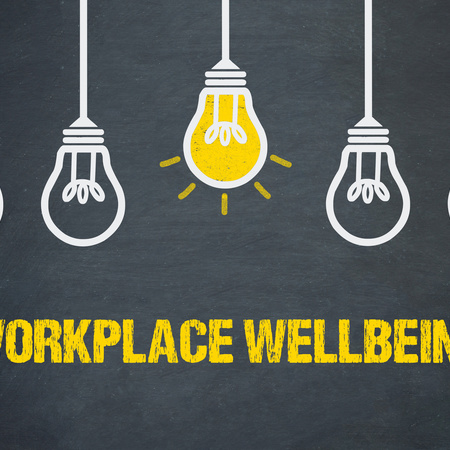
-
Feedback from the Future of Advertising
over 3 years ago by David LoveThs year's Brixton Finishing School graduates are entering a market like no other. But they are also more prepared to call out Adland's issues. Three of the 2020 cohort have shared their 5-point plan to create a more diverse, accessibile and kinder industry.Dear Adland,Allow us to introduce ourselves.We are part of the Brixton Finishing School Class of 2020 and we really admire your work. We’ve learned so much about you over the past ten weeks; working with other young creatives to understand what makes you tick and we’ve loved every second of it. However, some of us at BFS couldn’t help but notice a few inconsistencies in your tone of voice and values of late, and we’re hoping to get your opinion on our findings.Value 1: Open and accessible You say you want to bring in diverse talent and working with initiatives like BFS is a great start, but if you really want to attract young diverse creatives, you need to go to them instead of hoping they’ll come to you. The sad fact of the matter is Adland is a closed shop, practically undiscoverable to those with no insider knowledge. How does a teenager search for placement schemes when they don’t know what an agency is? Knowledge is power and in Adland it’s a privilege afforded to very few. For many us, we had no-one to tell us about M&C Saatchi’s Carbon Academy, or BBH’s The Barn, or to read Campaign mag (which we can’t afford anyway), and so finding BFS was the only thing that prevented us from falling by the wayside. While we appreciate schemes like YCC designed to increase awareness and accessibility, unless they’re placed in areas where young people are situated, e.g. schools and universities, then it becomes no more effective than shouting into an empty tunnel.Value 2: Innovative and inclusive You pride yourself on your innovation, it’s become the foundation for much of what you do, so we can’t help but question why a core part of your industry is so outdated. In Adland, networking is an outdated system built from the foundations of nepotism and privilege that work against increasing diversity. Yes, this system cuts down the recruitment process for agencies, and yes it gives some aspiring creatives a direct route in, but this is all contingent on having these connections in the first place. So many times over the past ten weeks people have told us to network and play the system, but when we think back to us as BFS starters ten weeks ago, qualified and desperate to find a way in, we wonder why through all of your innovation, the system can’t be changed to be more inclusive?Value 3: Creative with a diversity of thoughtFor some time now you’ve acknowledged the need for diversity to stimulate creativity, but have you considered whether you allow for a true diversity of thought? Adland has been built for the extroverts, and we get it to an extent. We’re in the selling business, and so we’re expected to sell ourselves. However, many of us have no training in how to survive this dog-eat-dog world, and for those who are introverted or suffer from social anxiety, it can feel like being shoved headfirst into the deep end before you’ve learned to swim. Being constantly active on social media; asking questions in large group settings; even inviting someone to a virtual coffee are all tactics used to stand out from the crowd, yet it can cause high levels of stress and anxiety for certain people. This industry is so reliant on networking and making sure you’re noticed that those not trained in this lifestyle have to either deal with the extreme mental exhaustion it creates, or risk unemployment. This would be understandable if being extroverted was necessary for every role, but it’s not. The creative industry leaves a lot of room for imposter syndrome to fester, it’s a place where we expose our creative minds to the criticisms and judgements of others. We’re not born confident, it is something that must be nurtured in the right environment, and for some who perhaps need more time than others, they may find themselves being left behind.Value 4: Kindness and respectKindness and respect are values all agencies proclaim, but in many of our meetings between BFS and you, it became apparent that being ‘respectful’ and waiting for your turn to speak is never going to happen unless you speak over others. Your gregarious character can create an environment that doesn’t open the curtain wide enough for those who prefer not to take centre stage but still want to voice their opinion. For real respect to flow through, there needs to be more care taken to allow all of us to speak up and express our thoughts and ideas, especially as these meetings turn virtual. Actions for changeWe want to leave you with five actions you can adopt to tackle the issues we’ve raised:Go to schools and universities; post your grad schemes on more than your LinkedIn and Twitter. Do what you do best: advertise. Establish a blind recruitment system that eradicates bias and prove it.Adapt talent recruitment to the specifications of the job role rather than to one personality type and disclose salaries in the application.Learn how to manage different personalities. Insights Discovery and Lumina Sparks both have training programmes on this.Stop using young creatives for free labour. Whether it’s working on a creative brief or participating in an industry talk, we deserve to charge by the hour. We would love to have a virtual coffee with you to discuss this in more detail, Regards,Mahalia, 23, copywriter, future D&AD pencil winner and CCD (discover Mahalia's portfolio here).Kristina, 23, junior marketing engineer, future CEO (follow Kristina's jewellery brand on Instagram here).Melanie, 21, photographer, future producer (check out Melanie's photography on Instagram here).Brixton Finishing School (Virtual) Class of 2020To deal with some of the issues highlighted above, BFS is launching its AD-Cademy; a national campaign designed to tackle the industry's lack of presence within diverse communities.Originally published on Little Black Book
Read More
-
Change Starts with Three Simple Steps
over 3 years ago by Emma LoveOne major and welcome change across adland has been the continued focus on talent diversity. It's clear that many agency leaders are looking at how to create more balanced teams and we are heartened by how many businesses are putting this on their long term agenda. Here is some advice from our friends at Commercial Break who are helping transform agencies and get them ready for diversity...----Since our open letter to the ad industry we’ve heard from a lot of agencies wanting to change their approach to attracting and retaining talent from working class backgrounds. Those agencies vary wildly in size, focus and personnel, but one thing they have in common is, despite their desire to do things differently, they don’t know how to start that process. So, here are 3 simple things that you can be doing right now to ensure that you start off the journey towards change on the right foot.-----1. “Up periscope” The first step to any change process is awareness. It’s only when we’re consciously aware of our environments that we can actually start changing them. Sounds obvious, right? It’s not. The reality is, most of us are rarely aware of how we behave in our workplace because we do what’s instinctive to us in the moment. We’re even less aware when it comes to what our impact is on others. When it comes to the diversity conversation, the easiest is to notice what you can see; what does your company ‘look’ like? Who is on your board? Do existing and previous employees look like they’re all from the same type of white middle-class background or are they different?That’s the easy bit.The real difficulty is in noticing the nuanced signifiers. The conversations that people are unable to join in because they don’t have the same terms of reference. Those that hold people from different backgrounds back from Friday night drinks creating the misconception they are unsociable because they don’t join in the standard office banter. This example from Chris Sawyer, a Radio 1 producer, explains: Swap ‘radio’ for ‘agency’ and you can start to see your own blind-spots.2. Work out WHY you want to changeWhen change is on the agenda it’s all too easy to accept it at face value. But change for change’s sake isn’t going to work. You have to work our why your agency wants to change.It’s better to take a moment to figure this out instead of rushing into making changes because it seems the ‘right’ thing to do. Real change takes commitment and undoubtedly. Having the leadership team agreed on the most motivating reason(s) for change from the start will help. These reasons need to FEEL compelling enough for you to stay focused on them. The recession is hitting hard, pitch deadlines still have to be met and client projects delivered. Unless your reasons for change FEEL important enough to the whole team, then they won’t override the endless demands from Unilever and procurement bosses. 3. What’s going to rear its ugly head and stop you in your tracks? Whenever we try and change anything, we will meet resistance. If you can identify them as early as possible within the process, then you can prepare strategies and plans to manage them when they do crop up – because they will. What do agency resistors look like?People in your team who are resistant to changeTime, time, time Billable clients to managePitch deadlines Making a profit in a recessionAnd 100 others. If you don’t spend time identifying them, you’ll fall at the first hurdle, think it’s too hard and then wonder about carrying on. ------It's always tempting to think change happens through a combination of good intentions and effort. And that’s true to a certain extent. But if you can take a moment before you dive in to figure out what your real compelling reasons are for change and what will be required to facilitate that, the road ahead is likely to be a good deal smoother than you might imagine. Susie Burdekin and James Hillhouse are the founders of Commercial Break.
Read More
-
Brixton Finishing School and First Jobs
over 3 years ago by David LoveYour first role in an agency can often be the hardest to find. We recently held a workshop with Brixton Finishing School to provide advice to students about to start the search.We are often approached by junior candidates asking for help in finding their first agency role. As most agencies recruit these roles directly, it is typically unlikely that we will have many suitable vacancies. Frequently however, we find that junior candidates don't know what else to do other than talk to a recruiter or be one of the hundreds of people applying for entry-level roles.What we can do therefore is provide advice about routes into the industry. In 2019, we spoke with students from St Mary's University about how they can find their first role in marketing. More recently, we had the immense pleasure of meeting with the 2020 cohort of Brixton Finishing School. What was immediately clear was the drive and ambition that the BFS students possess. They have already committed to a career in the industry and are willing to go the extra mile to get it – hence attending BFS.Our workshop therefore looked at how to get an interview with an agency, how to make sure that the interview goes as well as possible and some general advice to build a successful agency career.You can find a synopsis of our workshop at bit.ly/TGTGBFSpdf or for more information about the great work Brixton Finishing School are doing to help increase diversity in creative agencies, go to brixtonfinishingschool.org.
Read More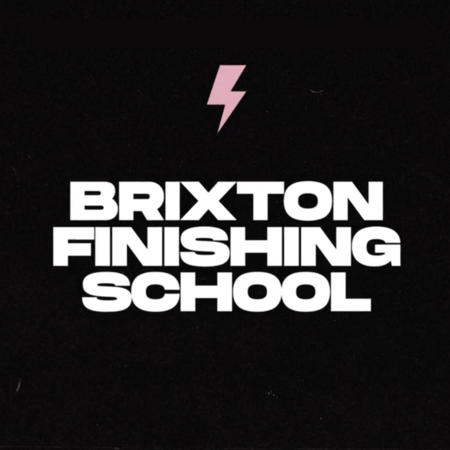
-
Driving Diversity
almost 4 years ago by David LoveFinding diverse talent is easy - there’s a bevy of schemes to help you. But retaining that talent is when it gets hard. For many agencies, the last few years have seen a (much-needed) drive for greater diversity in their recruitment. Whether they are aiming for more female leaders or to attract junior talent from non-traditional backgrounds, the emphasis has been on moving away from a middle class, white Mad Men image of marketing.Commercial Break was created in 2012 by Susie Burdekin and James Hillhouse to provide a pathway for working class juniors into agencies. In the last 8 years, they have seen a number of Commercial Breakers (some shown in the photo) join agencies of all shapes and sizes. But too many have quickly become disillusioned; plagued by feelings that the industry wasn’t for people like them.Susie and James have therefore shared their experience of where agencies have missed a trick and how businesses can ensure they are more likely to create a truly diverse team that allows everybody to bring their whole self to work.Audit yourself, hardThis all starts with you. Put simply, you have to audit the fuck out of yourselves. Garner honest perspectives and concerns from your staff. Figure out the issues that exist within your operation that are going to make you fail or succeed. It’s a big, time-consuming piece of work. If it sounds too hard, then that might tell you whether you should be doing it at all.How well are you set up for diversity? What do you need to change?Be specificDiversity is a really baggy term. If a client used it, we’d immediately nail them on it. So, what do you really want to do? Do you want to attract more black talent? Do that. Is your focus autistic talent? Great, do that. But don’t ever say, ‘we want more diverse people’, because that’s a group that just doesn’t exist.What do you really mean by "more diversity"?Disband your D&I teamWe might lose you with this one, granted. But unless your D&I team is the most powerful voice in your agency, shut it down. Now. Then put your D&I effort at the heart of the agency, and make it a collective focus. This is no longer an agency initiative, it’s your agency. How powerful a voice does your D&I team have in the business? Recruit bigWe're leaving recruitment to fourth, because it’s absolutely one of the last things you should do. And here’s some advice, when you do recruit, recruit big. Don’t get in one or two people. You’re better than tokenism. Replace your grad scheme. Get in 5. Get in 10. If all you ever get is a drip feed, nothing will ever really change. Jump start it instead.How many people are you going to recruit?Hold yourselves to accountYou are going to get things wrong. But worse, you are going to get things wrong that you think you’ve got right. You need to be held to account. And not by yourself, but by someone independent. Get yourself some hard truths once a quarter. You might not like what you hear, but each review will make you better.How will you track progress? How will you keep each other to account when the pitch deadline is looming? We have a golden opportunity in our hands right now. But if we rush into it without due care and attention then we’ll let it slip through our fingers before we’ve even started. Let’s not just do this, let’s do it right.Susie Burdekin and James Hillhouse are the Founders of Commercial Break
Read More
-
Young, Broke & Hungry
almost 4 years ago by David LoveLockdown has created new challenges for juniors looking to join agencies ... but also opportunities to improve diversity.What the BLM movement started has seemingly morphed within agencies into a much-needed wider question about diversity. In turn, this has highlighted the inherent issues caused by the traditional methods of hiring juniors.In an article originally posted on Little Black Book, Junior Creative Mickey Jones shines a spotlight on the problems many juniors face and how the pandemic may have provided the answers.In London, creative hopefuls can find a plethora of advertising agencies to sink their teeth into. Advertising expects fresh talent to attend portfolio reviews to get a foot in the door. Multiple agencies review their work and eventually they may earn a placement. Unfortunately, the majority of the UK’s hottest talent don’t live in London or have the means to visit regularly. Ironically, COVID-19 has made the advertising industry more accessible for those from a lower socioeconomic background or living in geographic isolation.Despite the surreal scenario, creatives from adland are offering several virtual initiatives. For instance, Young Creative Council’s Covid-eo Crits, The Fellow’s Virtual Portfolio Roster Sign-up Sheet and Virtual Mentorship Schemes created by Sai (the mind behind @Dongtent on Twitter) and Adweek’s Creative & Innovation Editor David Griner. This shows our community is full of compassionate innovators, which carries huge significance for young talent.The bigger picture highlights barriers of reaching the industry’s doorstep. The sudden arrival of “new” ways to do things, shows how we have previously shunned talent. We've been shouting “open door” from our agency rooftops for a while now. But if you’re from an impoverished background, or even just a rural location, the door, if not closed...has very stubborn hinges.Creatives from these backgrounds can be the poorly represented ethnic-minority, neurodiversity or gender diversity the industry needs, in order to change and modernise itself. After talking to several young creatives here are my findings...Being OutsidersDuring a portfolio review, I was advised to lie about my current address.The Creative Directors offered this advice out of genuine concern, because they know that agencies favour London-based candidates. For young talent commuting to London, travel costs on average £72.14 per visit. Despite every creative dreaming of landing a ‘gig’ on their first round of agencies, they’ll likely have to travel to London dozens of times. This can mean upwards of £288.56 each month solely to reach agencies’ doorsteps. This doesn’t take into account accommodation, food, portfolio website fees and Adobe CC subscriptions (£75.85/mo).Unsurprisingly, talent can and does come from working-class families. For these families, a train ticket to London is the same price as a weekly shop. Talent can also be a student trying to make rent because their loans don’t cover the bills and they have limited financial support from their families. It can be a bartender or your table waiters supporting themselves on minimum wage jobs, whilst trying to chase the advertising dream.Creatives from lower socioeconomic backgrounds and/or living in rural suburbs suffer the most when it comes to pursuing their careers. They’ll be the ones struggling to visit agencies on a regular basis.I declined office work for a lower wage barista job for the flexibility to travel to agencies during office hours (on a four-hour train). When booking extra time off for longer visits, alongside my reduced pay for that week, I’ll still have to manage extra travel costs. My situation is not unique for aspiring creatives living outside London. Is the industry recruiting in a way that is inclusive of untapped talent living in geographic isolation?RelocatingRelocating to London for a placement? Easy! That is, if you haven’t left university with a maxed overdraft and can’t rely on family support. COVID-19 is a prime example of an unexpected problem that is a huge threat for young creatives who may have decided to relocate before securing a placement. They’ve committed to housing contracts based on a plan to gain paid placements and part-time work, but the current situation means both options may not be available. This is a terrifying place to be for those with no safety net - the price of the hustle is financial suicide.Why we need to have this conversation and explore potential solutionsCOVID-19 led Adland to throw a virtual lifeline to young talent during this storm; no longer is the industry untouchable for some. The research from this article has brought to light some solutions that may be the difference between finding your next powerhouse or excluding them.Offer more virtual portfolio reviewsWithout eliminating face-to-face connection completely, let’s encourage the practice of virtual portfolio reviews to become more accepted and regular post-pandemic. The convenience of virtual networking saves time and resources for both professionals and creative hopefuls. Agencies can start dipping into a diverse talent pool forming insightful connections both sides can learn from.Set aside a travel fund to help reimburse struggling creativesPortfolio reviews are similar to interviews in other industries, where 50% of graduates attending them receive reimbursement for travel and related costs, according to media platform NewGrad. Let’s help young talent reach the agency’s doorsteps. Especially for creatives booking cheaper advanced trains and having their reviews cancelled last minute (although it can’t be helped), since they have to bear the financial loss. Reach out to your contacts and ask them to step in to see creatives you’ve had to cancel on. Acknowledge their commitment to the creative pursuit; show them advertising is an inclusive industry - like Lucky Generals - show them how we won’t neglect talent, regardless of their financial circumstance.Donate a desk to creatives coming in for portfolio reviewsSome creatives don’t have the luxury of a work-friendly home environment. When teams have welcomed me into their workspaces after ‘crits’, I’m grateful that they acknowledge workspaces in between agency visits take place in overpriced cafes. If you’re having to push back portfolio review times or shorten them, why not set them a brief and see how they work for yourself? Check back in later once you have time. Or send it over email if you can’t see them and let them share their responses over email or Zoom.Before offering portfolio reviews, be more upfront about the placement situation at your agency.A Copywriter mentioned the start of her career consisted of visiting the same agency over the course of 3 months, before finally having a confirmed placement. This is all a useful experience, but as one creative said, “it doesn’t pay the bills”. Offering virtual reviews can help save time and money for those travelling to agencies that don’t have placements available currently.Moving forwardYoung creatives are trying their damn hardest. They have hunger, it’s the industry that needs to have a genuine appetite for their diverse nature. The quality of creative work depends on this.From a B.A.M.E female perspective, this is what it’s like to crack advertising; I came from a working-class family and first set foot on English soil with only my mother. We are responsible for financially supporting our families as well as being second parents to our siblings. Our families will have reservations because they experienced a different cultural upbringing. My mother won’t be asking if I’ll enjoy advertising as a career, she’ll focus only on the financial viability it offers. Creatives like myself are working against cultural stigma, geographic isolation and financial hardships. We steal time to practice our craft and pursue it, questioning if advertising even has a place for people like us?COVID-19 is an ugly virus but it shows a beautiful side to our creative community. It proves that we are capable of empathy and embracing change. Let’s maintain this positive momentum long after this pandemic is over.If you are intrigued by this article and have ideas or questions, drop me an email at pickme.mickey@gmail.com - chances are I’m planning world domination, so let’s create mischief together.Mickey Jones is a Junior Creative & Copywriter
Read More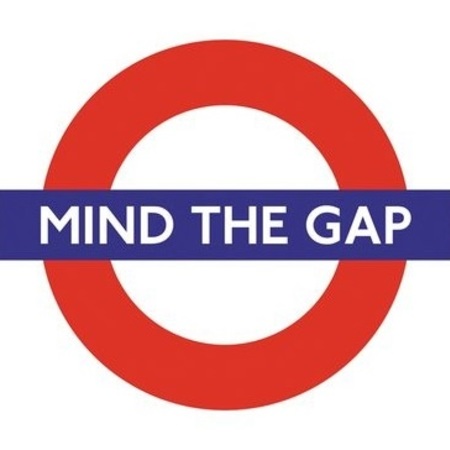
-
Business Unusual: The Road to Recovery
almost 4 years ago by David LoveHow have agencies reacted to Covid-19 and what are their plans for the coming months?Over the first 100 days of lockdown, we have been speaking with people from a wide range of agencies – holding company-owned or independent, startup or established, boutique or global, and across a range of industry specialisms/agency types.This gives us a rounded view of how the industry has adapted to Covid-19 and the plans for the rest of the Summer. On the whole we have seen the same prevailing trends across agencies of all types:There have been job losses but…We can’t pretend that there haven’t been any redundancies. However, some agencies have continued working for clients and therefore made far fewer cuts than they feared would be necessary. We’ve also seen examples of bold, collaborative efforts (including entire agencies taking temporary pay cuts) to avoid redundancies – a team-centric approachBrands are looking beyond the next few weeksThere is a rising sense that the worst is behind us (at least for now) and a willingness from clients to once again begin to loosen the purse strings. Even the worst-hit industries (e.g. hospitality) can take same comfort in the recent government decisions and start to see a need to resume marketingAgencies are getting busierNew business is increasing and we are hearing that the work postponed in March is now being reactivated. One of the main learnings from recent downturns seems to have been the need to keep the marketing tap turned on – both for brands and for agenciesTeams are starting to return to normalStaff are being brought back from furlough and in a few cases redundant roles have been reinstated. Agency leaders are now looking at the next challenge of how to reopen their offices … of if offices are even needed (in our opinion, yes they are but time WFH should be far more normal going forward)Agencies are still recruitingFrom 10-person startups to global networks, we have seen agencies of all sizes cast their nets to find great talent. And whilst there are challenges in on-boarding a new starter remotely these have proven to be far from insurmountableWhilst we appreciate that by no means every agency is through the worst of it, the prevailing sentiment is that a return to something like normality is starting to be visible. In the meantime, we'll be looking forward to 4th July so we can celebrate with a few drinks in the pub … and maybe get a haircut.Here’s to more positivity.
Read More -
Business Unusual: The Impact of Working From Home During Lockdown
almost 4 years ago by David LoveAfter 10 weeks of lockdown, new research conducted by Question & Retain, the insights agency, has revealed how employees are coping with working from home (WFH) and their fears about a return to the workplace.Conducted over a five-week period (4th April – 12th May) 2500 employees in the marcomms sector completed an online questionnaire (Pulse Check) covering key WFH areas including: effective communication/leadership, work/home life balance and connectivity. An addendum to the study (conducted 9th – 14th May) is a candid snapshot of how employees are feeling about a return to work.Employee EngagementBusiness leaders have long grappled with the juggling act of running a business and communicating effectively with their people – and yet the new WFH challenges are suggesting a positive shift. 57% of employees polled feel ‘well-connected’ to the leadership team and believe there is ‘sufficient and clear communication’. Of the remainder, 41% are positive but a little more equivocal stating that communication is sufficient and clear ‘for the most part’ – with only 2% indicating a lack of communication.“As business leaders the new working scenario has forced us to assess and re-think all aspects of running a business” says Ian Henderson, CEO, AML Group – one of the agencies that participated in the study. “The main focus, quite rightly, has shifted to the people in the business, in particular their mental health and wellbeing, and effective communication is an enormous part of that.”"66% of WFH employees aged 25 or under are suffering signs of mental ill-health"Employees have revealed that one of the most pressing issues relating to WFH is a disconnect from colleagues. Of those surveyed, less than half (48%) stated that they feel sufficiently connected.“Camaraderie and physical togetherness are a big part of most people’s working day – especially in an agency environment” says Fenella Grey, chair at Porter Novelli, London. “We are by nature a sociable species and working remotely and in isolation is a big challenge for many – especially younger workers. However, business has proved over night that it can adapt and move towards more progressive and flexible ways of working to accommodate wider needs.”Work/life BalanceWork/life balance has raised issues for a number of employees with no clear division and work/life lines blurring into evenings and weekends. Employees with families are also struggling to find a satisfactory balance with a number of respondents struggling to ‘switch off’ at the end of the day. Less than one-fifth of employees surveyed seem to have cracked the balance code with just 16% stating that their work/life balance is ‘excellent’."97% of employees have stated that they have reservations about returning to work in the office"Mental HealthThe study has revealed that 66% of WFH employees aged 25 or under are suffering one or more signs of mental ill-health with 1:5 suffering extremely high and low moods or social withdrawal.Respondents talked about being ‘overwhelmed with workload’ with work hours ‘consistently longer’ and expectations that can be ‘mentally draining’.Older employees (45+) seem to be coping better with less than half (40%) showing any signs of mental ill-health due to WFH.Returning to the office97% of employees have stated that they have reservations about returning to work in the office with 82% nervous about the logistics of getting there.The prospect of packed tubes was cited as a main concern with a number of respondents indicating that they would consider cycling into work.On the positive side, WFH has also given employees a taste of a more flexible way of working – with a shout out to business leaders to ‘consider the possibility of WFH a few days each week.’Talking about the impetus behind the research Annabel Dunstan, Founder and CEO, Q&R says: “As soon as lockdown was confirmed I twigged that there could well be a massive knock on effect in terms of mental health and wellbeing for those having to work from home. We devised a relevant and topical Pulse Check and invited agency leaders to get involved so that we could quickly assess the impact in the early weeks. It is clear the younger workers are the most adversely affected. It takes good communication from leadership including regular 1:1 check-ins and opportunities to feedback, to support employees in the new world we find ourselves in”.*Q&R conducted the anonymised research among 2,500 employees working from home for UK based marcomms agencies. A ten question Pulse Check survey was designed to seek feedback on mental health and wellbeing with the emphasis on encouraging respondents to be as candid as possible.Respondents were able to then share their reasons for selecting a particular answer, giving Q&R a quantitative and qualitative data set. Data was analysed for sentiment and key themes identified. The research was conducted between March 23rd and May 15th 2020, following the announcement of lockdown due to COVID-19.Annabel Dunstan is Founder & CEO of Question & Retainwww.questionandretain.co.uk
Read More
-
Business Unusual: Unlocking Lockdown
almost 4 years ago by David LoveAs agencies start to plan how they will re-open their office doors, David Regan of global law firm Squire Patton Boggs explains what needs to be considered.Following Boris Johnson’s announcement on 10 May, employers are now considering how they will get their staff back in the workplace – and finding that there are at least as many vexed issues in bringing employees back as there were in closing the office in the first place!It is not just a question of employees pitching up on the day – there are lots of practical issues which businesses are likely to encounter in the return process. The purpose of this article is to set out some of the common issues businesses will face and some ways of approaching them –there are of course no 'right answers' in this situation; rather businesses will need to carry out a nuanced review of all the facts before coming to a decision which suits the business and, in some cases, each individual employee. Health & SafetyThe recent Government guidance has reminded businesses of their underlying health and safety obligations. Whilst in the public perception these obligations were previously satisfied by little more than sticking up HSE posters, putting "Caution Hot!" signs by the coffee machine and putting striped tape across any steps or protruding power leads, these obligations are of course significantly more extensive in reality and require proactivity on the part of an employer, not least in the form of a risk assessment.Given we are in the grip of a global pandemic caused by a single virus AND the Government guidance on returning to work requires employers to carry out a risk assessment, one might have thought that the HSE would have provided a sample risk assessment tailored for COVID-19, but while it states this to be the case, on closer inspection this is simply a standard risk assessment and is not COVID specific (although the HSE for Northern Ireland has prepared one that is). "What is an acceptable risk for one business will be unacceptable or impracticable for another."So what might businesses need to consider as part of any such risk assessment? Who might be harmed? (staff, visitors, cleaners, contractors, drivers, etc).Potential ways of minimising or controlling the hazards (handwashing, cleaning, social distancing, PPE, temperature testing, wearing of gloves).What can be done to assist employees dealing with these hazards? (ensure there are handwashing facilities with adequate supplies of soap, water, paper towels, ensure that cleaning takes place with appropriate thoroughness and appropriate regularity, redesign offices to reinforce social distancing where appropriate, monitor employees symptoms).What can be done to encourage employees to comply with their obligations? (regular reminders to wash hands and of public health advice, check to ensure cleaning protocols, enforce social distancing through appropriate measures in the office).Practical issues around restarting the office (has the air conditioning been switched on recently? Has the water been run to reduce Legionnaire's risks? Do the lifts or other machines need servicing?, etc).Clearly, each risk assessment needs to focus on the specific circumstances of the business. What is an acceptable risk or a reasonably practicable preventative measure for one business will be unacceptable or impracticable for another. However businesses need to start thinking about these issues now if they are to prepare properly.Mental HealthAnother risk factor which needs to be considered (indeed one which may well warrant its own risk assessment) is employees' mental health – there are any number of issues which may be affecting this currently, but employers would be wise to consider the effects of:coronavirus (which creates uncertainty which can affect employees mental health);lockdown (which can increase a sense of isolation for employees, exacerbating or leading to mental health issues);poor management (it being harder to manage effectively remotely);medical issues (whether personal or family);financial issues (whether due to furlough or pay cuts, or worries about potential future redundancy);productivity/ performance concerns (employees may feel under extra scrutiny as they are working remotely and managers cannot see how hard they are working). Returning to office-based is of course not a panacea for these issues. In fact it will likely lead to further concerns – for example, many employees may feel uncomfortable travelling to work on public transport. There has also been a rise in obsessive compulsive behaviours during lockdown – this too may impact employee mental health on their return.Who should come back?Once businesses have decided to come back to work and what they can do to protect their employees, the next question is who do you bring back to work and how quickly?Do you want to:bring back all of the employees at once (which is unlikely to be suitable for all businesses, particularly where social distancing cannot be maintained)?bring employees back in shifts to reduce occupancy (helping manage COVID-19 risk, but potentially impacting productivity) ? open the office with a skeleton staff so it can be used wherever absolutely necessary, but to continue to allow/require employees to work from home? (leading to risks of a confused workforce – guidance needs to be clear to avoid mixed messages)Again, there is no definitively right or wrong answer to this; it is something which will depend upon the needs of each business. However, it may help employers to consider the following:which roles they need in the office first;whether this is client sector specific;has the technology that has enabled working from home been effective;should any office-based employees who have been furloughed be brought back first, before other employees are brought into the office;how will communications be maintained where some employees are in the office and some are not? A special set of questions arises for those employers who have furloughed staff – do you bring them back from furlough and, if so, how many and when? Equally, if you have rehired any employees simply so they can benefit from furlough, at what point do you intend to (re-)terminate? Again, there are no easy answers, although in the case of furlough some of this may come in the next few weeks as we learn more about the tapering of the furlough scheme.What if you don't need all the employees?Many employers will regrettably need to consider whether their commercial outlook justifies retaining all of their staff. If not, and there is no longer an option to place staff on paid furlough, then it might be necessary to consider redundancies. Of course, where 20 or more employees are potentially at risk of redundancy, this requires collective consultation, meaning that you need to factor in the necessary time to carry out a consultation process. This is particularly problematic where some of those employees who are at risk of redundancy are presently on furlough and the employer is trying to minimise the financial exposure to those redundancies.If all else fails, be transparent and openAs can be seen, the process of seeking to return to what will, for now, be a new normality, will not be easy. There are certainly more questions than answers at this stage. However, provided businesses treat their staff with openness, honesty and transparency, then whilst there will undoubtedly be teething issues, the hope is that operations will resume – if not as smoothly as before, as least as smoothly as possible.David Regan is a Director at Squire Patton Boggs dealing exclusively in labour and employment law
Read More
-
Business Unusual: now is the time to put your people first
almost 4 years ago by Emma LoveThe pandemic has brought with it a massive spike in anxiety and stress such that the UN has warned of a global mental health crisis. Marc Caulfield talks honestly and openly about Adland's responsiblity to its people.Everything has changed but nothing has changedAs we try to make out the Government’s slightly wishy-washy measures to release the pressure on lockdown, now is the time for genuinely putting your people first. Yes, that means before clients! People drive great work. So many agencies talk about people first, but if we are all honest, we know from some that is bullshit. Much like Mental Health awareness week, this pandemic shouldn’t be the one time that your people’s wellbeing becomes front of mind.Now is the time for genuinely putting your people first. Yes, that means before clients!Quite simply everything has changed but nothing has changed in terms of an employer’s moral, ethical and legal duty of care for their employee’s wellbeing.The terror of changeAdland, for a communications business where there is a plethora of laptops, smart phones, and tablets, has never been great at embracing remote working. This has obviously changed since 23rd March. Excuse me whilst I punch myself in the face for saying this, but this is now the ‘new norm’. When this inevitably starts the shift from WFH back to WFW I believe we will see unprecedented people issues coming to the fore. Some people will love WFH and others will hate it. Some can do it, and some cannot.The key driver here is CHANGE. The very word sends people into a spin. Human beings find change so difficult because of some basic human subconscious reactions. Simply put we all find change stressful in varying degrees. Most of us have some understanding of the ‘fight or flight’ system that the body subconsciously activates in times of stress. I will not go into the psychological or physiological effects that Adrenaline and Cortisol have on our minds or bodies but suffice to say they play a significant role in our fear of change.An example here is the way people often repeat things that haven’t worked before. Do the same things again in relationships that have failed before. I think we can all relate to ourselves, our families and our friends making similar mistakes over again. We have all done it. We promise we will learn each time, however more often than not (certainly in my case) we repeat the same mistakes again and again. Why on earth would you do that?! Simply because what you know sometimes feels ‘safer’ than what you do not. Change throws all of this up in the air. Will the change really be better? This is what is in play in the workplace now.There will be untold personal problems that have come out of the lockdown that people will not necessarily want to discussEmployers really do need to push wellbeing, particularly mental wellbeing. Most employers will be focusing on the state of their business commercially, understandably, but people MUST come a very close second. For all the positive stories we read about families coming together there will be many families that this level of isolation will feel like imprisonment. There will be untold personal problems that have come out of the lockdown that people will not necessarily want to discuss at or with work.Employers will need to find the balance between getting their businesses back on track commercially and ensuring their people have the mental capacity and health to cope with the pressures of trying to get back some semblance of normality. This may involve some serious mental health training for managers / directors; we are not talking a box ticking exercise; we are talking about real cultural shift.The view through a legal lensTo put a legal, and therefore financial, reputational, talent retention & recruitment lens on this, the last recession saw a 50% increase in employment tribunals claims. COVID-19 has certainly had such a brutal effect on the UK economy we can draw comparisons. Speaking to a variety of law firms over the past few weeks this is a commonly shared view. There is a heady combination of opportunity, tribunal fees being abolished from July 2017, and some suspect use of the furlough scheme along with knee jerk / panicked cost cutting.The last recession saw a 50% increase in employment tribunal claimsAlready employment lawyers have seen a resurgence of claims under Section 44 of the Employment Rights Act 1996; this is where employees perceive an imminent and serious danger at work and reports this to the employer. Any detrimental treatment here can result in a claim. Likewise, Section 100 of the same act deals with dismissal in such circumstances. This should be seen as a warning sign for Adland, no longer an area of business that avoids the normal rules of HR! This used to be a badge of honour, time has moved on.They say every cloud has a silver lining; if this pandemic galvanises Adland into action around their most important asset, their people and their wellbeing, then maybe it’s not all been bad.So, what should we all be doing / thinking?People have been through unprecedented change; be mindful of this fact (as above).Accept that all of your people are different; one size certainly won’t fit all.As a leader you may well have taken lockdown in your stride, don’t assume everyone has.Inevitably there will be change coming in working practises, how will this affect bricks and mortar costs and in turn senior management financial stress?How will you monitor WFH effectively?Empathy is key; you have no idea how being in lockdown has affected people – relationship damage, loneliness, abuse etc.The most important thing is to talk to your people, how are they feeling, what do they want to do after lockdown is lifted? There is an opportunity to come out of this gaining huge respect from your people, if handled well.If as a leader you feel you want to change your working practises then communicate this; this is the ideal way to get people to open up. Every Mental Health workshop we have run where a leader has opened up about their mental health has been a giant step to cultural change and openness.If you would like to discuss how Demolish the Wall can help, please get in touch: -Marc.caulfield@demolishthewall.com07766 235500
Read More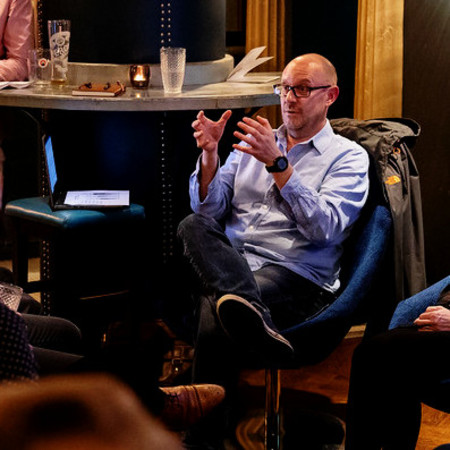
-
Business Unusual: How Mr President Are Keeping Connected Under Lockdown
almost 4 years ago by Emma LoveWith teams unable to work face to face, maintaining a strong company culture is a new challenge for most agencies. We have been speaking with Mizzy Lees from Mr. President about how the agency has adapted to ensure that they stay connected under lockdown.Mr. President is an agency known for its company culture. We are a close-knit team and we care deeply about our employees’ experiences at work. This is one of the reasons that my role of People Director exists. My job is to balance the needs of the team with those of the business (amongst other things). We were one of the first agencies to close our offices and start working from home because of Covid19. It no longer felt safe for the team to travel across London, and since we knew our IT infrastructure was capable, on the 12th March we emptied the fridge, turned out the lights and locked the doors. Part of my role is to monitor the collective energy within the team with the aim of keeping it positive and focused, with a shared ambition. I worked out pretty quickly that we needed to rethink the way we worked to achieve this, so here are some of the things we have been doing to keep the team connected in lockdown. Keep up the usual routinePre-lockdown, we started the week together with the company wide Monday morning meeting and eased ourselves into the weekend with Fun Friday from 4.30pm. We were keen that lockdown didn’t stop us from coming together as a group, so we keep both of these events going via Google Hangouts. It’s a great way to check in with each other, to find out what everyone is up to and what we need to achieve that week.The power of videoUsing a video conference platform with a grid view is 100% worthwhile. There is something quite powerful and motivating about seeing the faces of the full team coming together. You get a much better sense of team spirit. Throw in a team quiz on a Friday and you also have structured social time too, without any of the chit chat social awks.My pyramid of commsI have a brilliant team of line managers. I work very closely with each of them to ensure that those in their team feel supported, heard, are pushed and have a clear path for progress. We anticipated the increased need to monitor workload and well-being during lockdown, so they each have more frequent individual and team check-ins, not just about work, but also to ask, ‘how are you?’. This includes those on furlough leave who are still checked up on weekly. In turn I regularly check in with each line manager to see how everyone is doing. If any flags are raised, I can follow them up. It’s a good system, but only works if we keep all the conversations going.Know your point peopleThere are roles in the agency that connect with everyone. Whilst they might not be having the ‘how are you?’ conversations or monitoring workload, they are able to gauge general mood. I have a regular check-in with these people too to gauge how the agency is feeling. Again, if any flags are raised or anyone has any concerns about the team, I can follow them up.Pick up the phoneI love WhatsApp and Google Chat. They make life so much easier. But sometimes you really do need to pick up the phone and have a proper chat to check-in. You can tell a lot more about a person from the tone of their voice. They will also reveal more about how they really feel when they have the space to talk. I seem to spend a lot of my time on the phone at the moment. In recent weeks I’ve learnt that keeping the team connected in lockdown requires a real commitment of time and energy. It’s a necessity not just for businesses to operate, but also for each individual’s health and well-being. And whilst lockdown will be temporary, working remotely and flexibly is here to stay. So, the changes I am making now don’t feel like temporary solutions, but how we are adapting for the future working world.Mizzy Lees is People Director at Mr. President
Read More
-
Business Unusual: Taking care of yourself
almost 4 years ago by David LoveIn these unusual times, it's easy for our normal habits to be broken and as a result for our health to suffer. We asked Health Coach Michelle Flynn for her advice for life under lockdown.During this time we should be focusing on our health more than ever. Whether you have already had the coronavirus and are thankfully recovering or if you have not had it, at least as far as you know, boosting your immune system is critical for our long term health and wellbeing.When it comes to living a long, healthy, happy life there is nothing that can impact us more than implementing good habits.I am going to make it easy for you, here are six core principles of healthy living that most effectively add years to lives, and life to years. SleepSleep is key to all health and wellbeing. Are you getting enough? You need to be getting 7–9 hours sleep a night. Our bodies all require long periods of sleep in order to restore and rejuvenate, to grow muscle, repair tissue and synthesize hormones. FoodEat whole, real foods and avoid processed foods. If you do this not only will you never have to count calories again but more importantly you are significantly boosting your immune system and reducing your risk of all chronic disease.MovementRegular physical activity at moderate intensity will assist weight control as well as reduce cancer risks, simply this means using your one exercise a day slot to walk 10,000 steps. If you are an athlete then of course train hard but over exercising can actually do more harm than good.StimulantsSorry you are not going to like this one (especially as I know at the moment we are probably turning to these more than ever) but we all know the more you reduce caffeine, alcohol, smoking the better. StressStress is an inevitable part of life, but you can improve the way you respond to stress and avoid / change some of the situations that create negative stress. To cope with the stress that you cannot remove there is nothing more powerful than a daily breath practice as it scientifically changes the chemistry in our body. It is as simple as inhale for 4, hold for 4, exhale for 8, repeat.LoveLoneliness is one of the biggest causes of depression and we are all feeling more lonely than ever before, even if we are isolating with those we love. So connect with your family and friends in whatever way you can… virtual quiz nights, dinner parties over zoom or a good old fashioned chat on the phone.So rather than saying “I will get healthy” it is time to say “I AM healthy”.And if you are ever unsure what to do then ask yourself “What would a healthy person do?” If you act like a healthy person long enough you will become one.Michelle Flynn is a Certified Health Coach. Find her at www.michelleflynncoaching.com
Read More
-
Business Unusual: Onboarding Remotely - AML's experience
about 4 years ago by David LoveContinuing our Business Unusual series we look at how new team members can be welcomed into a business under lockdown.It may seem untimely, tactless even, to be talking about hiring new staff when so many agencies and other firms are laying people off because of the global pandemic. But sometimes, through accident or need, it happens. Ian Henderson, CEO of AML Group, talks us through their recent experience.We’re a few weeks in to the new normal of remote working. The move to working from home was a double jolt to AML, having just moved into a shiny new space at the Tea Building in Shoreditch then moving out again a couple of days later. It was just long enough to find the nearest coffee shop, bag the best locker and make sure the new tech was working.Fortunately, it worked beautifully thanks to our excellent IT support team. Virtual server access, new phone setup and everyone on Microsoft Teams meant we were ready for the crisis even before it happened. Working with clients around the world meant videoconferencing was nothing new; and we even managed our first remote pitch during the few hours we were in the new building.Our new FD, Sheena Shah, joined AML from Fallon only a few days before. Sheena just about had time to learn peoples’ names before being plunged into full crisis management mode, looking at smart ways to protect the business and look after our people, while giving our clients the service they are still needing from us.AML does simple ideas for complicated businesses – advertising, content and digital strategies for organisations in finance, technology, government, professional services. These tend to be sectors where the current crisis demands more communication, not less; we know we are very fortunate to be less exposed to sectors like travel or events. It means we’ve had a busy few weeks – so busy, in fact, we decided to go ahead with a senior creative hire despite every instinct saying the opposite.Starting a new job at home in a global pandemic feels pretty surreal, especially when your first brief is a pitch!Creative director Ross Garden and I met Dan Wright, a senior creative writer who had spent some years working at Lida and M&C Saatchi, a week or so before the crisis. We liked him, and his track record seemed exactly right for us. We have a terrific ‘family’ of freelancers who often work with AML but we felt strengthening our in-house team would make client continuity easier while working remotely; plus we didn’t want to lose Dan, so we went ahead with the hire.Dan himself was surprised – he’d thought the lockdown would change things and only started believing it would happen when AML MD Tim Lloyd turned up on his doorstep with a brand new laptop – leaving it a safe distance away, obviously. The next day Dan was using it to join the all-hands morning meeting on Teams video – feeling very foolish and still wondering if it was some April Fool’s Day prank.It wasn’t – an hour later he was being briefed on a pitch, and soon found working as half of a creative team over video link just as productive as being across the same desk. Dan tells us he always feels anxious during a pitch, and that was the same; and there were inevitable glitches in communication – working apart meant Dan couldn’t have the same degree of control over every aspect of the work as he was used to and some things couldn’t be fixed by walking across the office for a chat.The pitch went well and everyone was buzzing afterwards – including Dan, who said the experience felt good but mentally exhausting. The agency knocked off early for Easter with a visit to the AML Arms, our virtual pub where everyone gets together for a gossip over a drink. We announced a couple of well-deserved promotions, Dan and Sheena joining in the congratulations as fully-fledged members of the team - even though Dan had never physically met anyone. But maybe that’s just normal, in the new normal.You can read Dan's thoughts on starting a new role under lockdown at https://www.advertisingweek360.com/starting-my-new-creative-job-during-a-global-pandemic/.Ian Henderson is CEO of AML Group
Read More
-
Business Unusual: NABS is here for you
about 4 years ago by Emma LoveNABS is the support organisation for the advertising industry. They support everybody in the industry, from junior execs to CEOs, helping them with their wellbeing so that they can thrive.Despite the unpredictable world we currently live in, there are a few simple things you can do to support your wellbeing.Follow the official advice. Do what you can to keep safe, and this will give you a little peace of mind. The government guidelines along with instructions from your employer should be your main source of information here.Restrict your news consumption. You want to be informed but not inundated; too much news could make you stressed or frightened. Choose when you’ll check in, and only use trusted sources.Get help and information from the NABS Knowledge Hub. Free to use and full of practical and helpful advice, NABS’ Knowledge Hub brings together everything you need for support during the coronavirus outbreak, from understanding furlough to managing anxiety and navigating life as a working parent. Communicate. This is huge. While isolated and working from home we need to make an extra effort to keep in touch with our colleagues. Map out with your teams how you can support and work with each other, and don’t expect things to work first time. This is a new situation for all of us. It’s OK for us to make mistakes and try new ways of working. NABS Advice Line team ask this question to everyone who calls: “What do you most need?” Ask your colleagues the same question and you’ll discover how you can meaningfully support each other.Mind movement. Calm your body and mind with breathing, mindfulness, yoga or exercise. Try doing something every day to support your physical and emotional health. From meditation apps to yoga videos on YouTube, there are lots of wonderful free resources online that can help you.Read more of NABS’ advice. We’ve shared our advice across the industry press on how to cope during the pandemic. Do have a read for more tips in MediaTel, Little Black Book, Campaign and MarComm News. Working parents will like this honest and informative piece in BITE.Call NABS. We’re ready to help you with our support services:NABS Advice Line 0800 707 6607 or email support@nabs.org.ukWellbeing and career coaching via phone and Skype: https://nabs.org.uk/how-we-can-help/career-support/Masterclasses (group coaching to be delivered online): https://nabs.org.uk/how-we-can-help/masterclasses/Newsletter: sign up for weekly advice, support and updates in your inboxConnect with us on social on Twitter, LinkedIn, Facebook and Instagram.Our services are free and you can use them as many times as you like.NABS is the support organisation for advertising and media. We’re here for you, so please get in touch with our Advice Line on 0800 707 6607 or email support@nabs.org.ukAnnabel McCaffrey is Head of Support for NABS.
Read More
-
Business Unusual: Robin Bonn weighs-in on new business
about 4 years ago by Emma LoveIn a world gone topsy-turvy, what does this mean for new business? We asked agency growth expert, Robin Bonn, to weigh-in on agency business development in the current climate. If there’s a single secret to winning new-business, it’s empathy. And now’s the perfect time to be more client-centric and do the right thing.Without downplaying the severity of the COVID-19 crisis, keeping spirits up is important.So I was heartened by some reassuringly British piss-taking on the socials; a friend sarcastically praised the heavens for finally finding that ‘guide to working from home’ that we’ve all been sorely lacking. In fairness, the agency that produced it was probably well-meaning, if a little late to the party. It’s certainly way more defensible than idiots failing to switch off their automated spam sequences (‘Hi Robin, I know you’ve ignored my first five emails, but who at Co:definery is responsible for sock purchase and sock repair?’). And of course the COVID-crassness award must be reserved for any tone-deaf bellends trying to self-servingly newsjack the horror. No, I don’t want to read ‘why a pandemic is the perfect time to invest in branded pens’. Anyway, all this highlights an important question for agencies - how should you be doing new-business right now? A risky time to sell There’s a fine line between welcome help and unsavoury opportunism. And given that we’re all a bit frazzled, if even slightly badly expressed, a genuine motive can easily be misconstrued. So the stakes are high, with plenty of jeopardy. Looking like an arse is one thing, but it’s far worse to add yet more stress to another human being. That’s why my best advice is to pause and reflect. Ask yourself if you’re truly helping. Do you have genuine permission and authority to offer this? Would you welcome your approach if you were in your prospect’s shoes?Measure twice, cut once. Have permission to help The easy win here is relevance. Stuck at home, we’re all doubly dependent on Ocado, Amazon, Netflix etc. And it’s the same in business - unprecedented times are creating acute demands. So if you have authority to help, then do it - just choose your words carefully. Good examples I’ve seen include leadership mentoring, free resources for performance coaching and guidance on making complex decisions. This movie matchmaking service is another empathetic idea that meets simple human needs - be that combating loneliness or just entertaining your kids. Another practical tip is to start with your current clients. It’s a great opportunity - not just to be useful, but also to learn how to be useful. They already trust you, there’s rapport in place and you know their priorities. So as well as being at less risk of being misinterpreted, you can also offer softer support. But don’t email - give them a ring. Running a remote pitchAnother question I’m being asked is how to run a pitch when the world’s in lockdown. If you’re lucky and demand remains, then this is a great problem to have. Firstly, remember that the principles of mobilising, briefing and rehearsing your team haven’t changed. Your existing process, milestones and performance indicators still apply. Of course you’ll need to make nuanced changes. Developing your response and, in particular, discussing subjective feedback will take longer when you’re not face to face. Lacking so much body language means you should check and double-check that your precise intention has come across. As George Bernard Shaw said, ‘the single biggest problem in communication is the illusion that it has taken place’.Presenting in unfamiliar conditions When it comes to pitch day, there are obvious challenges. For example, reading the room is way trickier via video conference. Even knowing who’s speaking can be a challenge, depending on the software in play - especially if you’re suddenly having to use the client’s platform (pro-tip: don’t). So the old cliché of ‘failing to prepare means preparing to fail’ has never been more true. You’d like to think the client would forgive some clunkiness, but anticipate and prepare like never before. Case in point, rehearse like mad. Do a dry run with a remote audience. Think about stage management. Who’s handling client questions? How will you avoid multiple voices weighing in and a cacophony of ‘no-sorry-after-yous’? Appoint someone to lead on the new playing conditions. It’s their job to learn how remote presentation experts do it. Adopting a few novel gestures and conventions could differentiate your pitch, remove awkwardness and help you perform well. How to NOT pitch remotely Beyond the practicalities of running a WFH pitch process, don’t forget that it’s still one big diagnostic. The client’s weighing you up and you’re assessing them too - not least to infer your chances of success. For example, walking away when you’re not going to win is something few agencies find easy. We’ve all heard the immortal line ‘I know we won’t win, but we’ve come this far…’. Now is the perfect time to develop this skill. Yes, a win would be doubly valuable right now. But there’s also more risk. From protecting fragile morale, to the unique opportunity cost of wasting this relatively free time, think extra hard about whether the client is serious - about the process, but particularly about your agency. Ring them. Will they take your call? Are they definitely going ahead with the work? How clearly can they articulate your potential fit? Are they willing to discuss adaptations to the process, like extending deadlines or adopting different formats? This kind of probing should already be second nature, but if you’re ever going to raise your threshold for agreeing to competitive pitching, then do it now. Use your time well I mentioned time - all of a sudden, it’s at far less of a premium. Many of us haven't been this unburdened by deadlines since…. ever. It’s a massive opportunity to invest in your future, nurture your soul and do some good. What’s that article you’ve been meaning to write? Maybe finish reading that business book? Perhaps finally plan that thought leadership initiative? Can you support your local pub like Lucky Generals? Maybe set-up a WhatsApp group to tell your neighbours when Sainsbury’s have got eggs in. It sounds trite, but get a hobby. Don’t sit hunched over your screen fretting 24/7 - I’ve just started drawing again for the first time in 30 years (am no better, sadly). Help your fellow agency leaders too. The likes of Agency Hackers, MAAG, BIMA and Agency Collective are facilitating free-of-charge spaces where agency communities can talk, joke, commiserate, learn and share. None of this is rocket science, but it’s all productive. And more importantly, it will help you adapt to the new normal when we get past the immediate crisis. Selling is helping For now, obviously the most important thing is everyone’s health. And hopefully the Government’s measures will help us all weather the economic storm. But at the same time, despite these unprecedented (definitely word of the year) events, you can keep the sales and marketing engine running - as long as you proceed with caution. By picking up the phone, carefully testing your offer and maintaining a complete focus on your audience’s needs, you can - and should - keep on ‘selling’. And once this crisis passes, perhaps agencies will realise two things - firstly, in difficult times, selling is helping. And secondly, it always was. Of course being compelling and persuasive is important, but fundamentally you’re just helping get clients from A to B. And that is built on empathy. So good luck for now. And if you want to stick the kettle on and call for a natter, just shout. I’ve got a brilliant guide to remote working that I can share. Robin Bonn is the founder of Co:definery - a management consultancy for agencies - and a columnist for Marketing Week. You can also find him on LinkedIn and Twitter.
Read More
